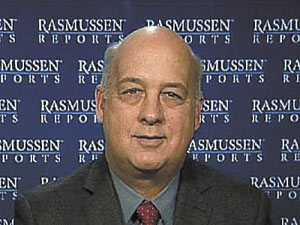BY LINDA BENTLEY | DECEMBER 19, 2012
Implementation of Obamacare facing more hurdles
‘[T]he realities of implementation will provide many avenues for ongoing resistance’
WASHINGTON – The extended Dec. 14 deadline has come and gone for state governments to decide whether or not they would create their own state-run health insurance exchanges under the Patient Protection and Affordable Care Act (PPACA), otherwise known as Obamacare, that would allow individuals to purchase private health insurance if they didn’t receive health insurance from their employers.
Twenty-five states, including Arizona, have declined to set up state-run exchanges.
The way the law is written, states that do not set up their own exchanges will have exchanges set up by the federal government.
Only 18 states and the District of Columbia have opted to set up and manage their own exchanges while seven states have decided to go into a partnership with the federal government to set up their exchanges.
Since state-run exchanges have to be approved by the federal government, it is essentially a federal exchange operating at state taxpayer expense at a cost that appears to be unknown.
While the law, as written, provides for state-run health insurance exchanges to receive federal subsidies, it does not have a provision to provide the same funding for exchanges run by the U.S. Department of Health and Human Services (HHS).
The decision-making factor for New Jersey Gov. Chris Christie, who opted out of setting up a state-run exchange, came after asking HHS numerous questions about how much it would cost to set up a state-run exchange and receiving no answers.
Despite the U.S. Supreme Court declaring the PPACA constitutional, according to Rasmussen Reports, just 46 percent of voters have a favorable opinion of the law, while 49 percent view the law negatively.
Only 22 percent believe the law will reduce the cost of health care with 48 percent believing the cost will go up.
By similar margins, voters expect the law will diminish the quality of care while driving up the federal deficit.
Rasmussen also reported overall, just 28 percent believe the health care system will get better over time, while 50 percent expect the opposite.
 Last March, Scott Rasmussen (r) wrote the health care law was doomed, regardless of what the Supreme Court decided. On Friday he said, “That still appears to be the case.”
Last March, Scott Rasmussen (r) wrote the health care law was doomed, regardless of what the Supreme Court decided. On Friday he said, “That still appears to be the case.”
He said, “[T]he realities of implementation will provide many avenues for ongoing resistance,” noting the biggest challenge is more basic, whereas voters want more control over their own health care choices than either the status quo or the PPACA allows.
While voters seem to be OK with insurance companies being forced, by law, to offer comprehensive coverage, 74 percent believe everyone should have the right to choose between expensive plans that cover practically everything imaginable and lower cost plans that cover fewer procedures.
Rasmussen said, “Giving consumers that kind of choice would be a popular reform. Giving them that kind of control over insurance companies would do more to reign in the cost of medical care than anything else.”
The PPACA is set to go into effect Jan. 1, 2014.




